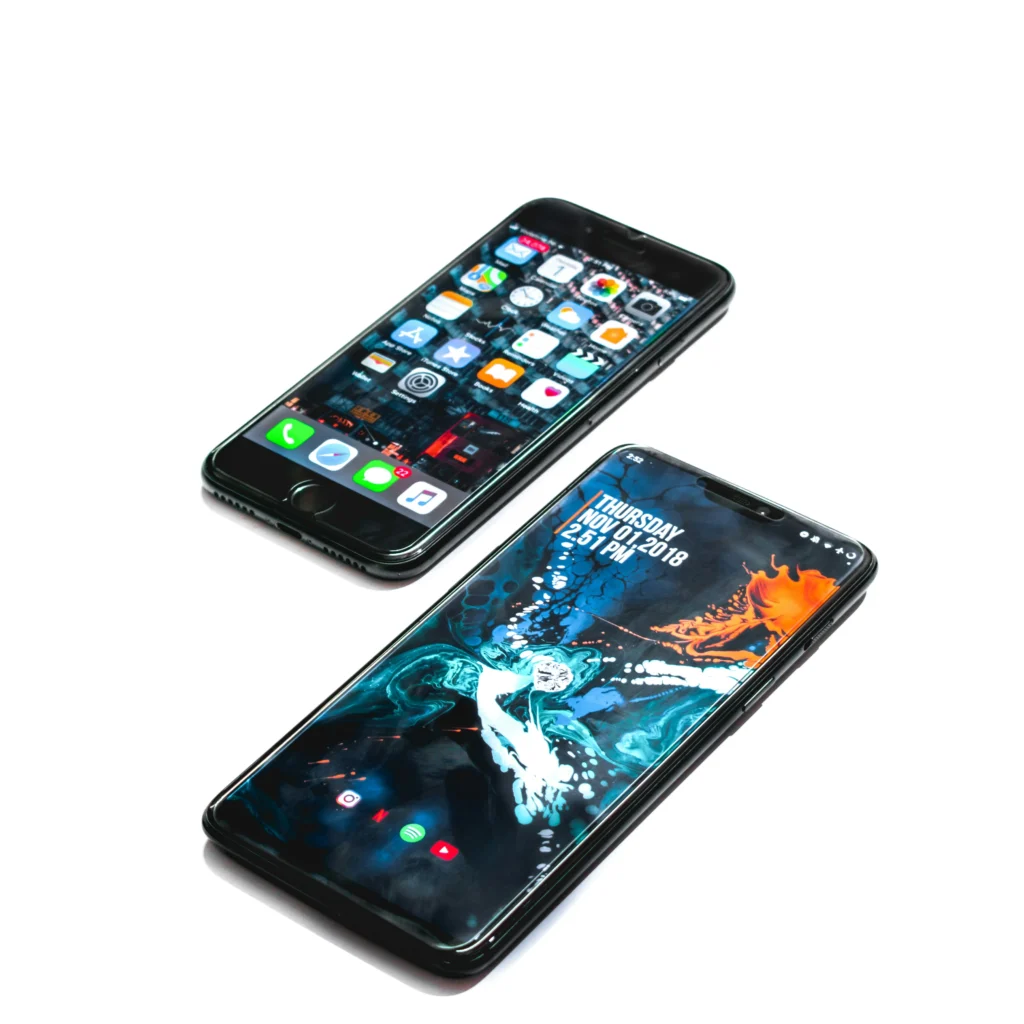Android vs iOS: 7 Powerful Factors for Unbeatable Mobile Gaming Dominance
“Which is the best for mobile gaming? Discover 7 key differences in performance, graphics, battery life, and game compatibility to determine the ultimate gaming platform.”
Mobile gaming has become a global phenomenon, with millions of players engaging in competitive and casual gaming every day. The battle between Android and iOS gamers has been a long-standing debate, with each platform offering unique advantages and experiences. This article dives deep into the gaming ecosystems of Android and iOS, exploring which platform delivers the best gaming experience, offers better options, and dominates the competitive gaming scene. We’ll also analyze real-world data, player preferences, and emerging trends to provide a comprehensive comparison.
1. The Gaming Experience: Android vs iOS
Performance and Hardware
When it comes to gaming, performance is king. Both Android and iOS devices are equipped with powerful hardware, but there are key differences:
iOS: Apple’s iPhones and iPads are known for their optimized hardware-software integration. The A-series and M-series chips (e.g., A17 Pro, M2) deliver exceptional performance, ensuring smooth gameplay even for graphically intensive titles like Genshin Impact or Call of Duty: Mobile. iOS devices also benefit from consistent updates and a unified ecosystem, which minimizes fragmentation.
Android: Android devices, on the other hand, offer a wide range of options, from budget-friendly phones to high-end gaming powerhouses like the ASUS ROG Phone or Samsung Galaxy S23 Ultra. The Snapdragon 8 Gen 2 and Dimensity 9000 series processors are comparable to Apple’s chips, but the diversity in hardware can lead to inconsistent performance across devices.
Winner: iOS edges out Android in terms of consistent performance, but Android offers more variety for gamers with specific needs.
Game Library and Exclusives
Both platforms boast extensive game libraries, but there are differences in availability and exclusivity:
iOS: The Apple App Store is known for its strict quality control, ensuring a polished gaming experience. Some games, like Monument Valley and Oceanhorn, are iOS exclusives or launch first on Apple devices.
Android: The Google Play Store offers a larger selection of games, including many free-to-play titles. Android also supports sideloading, allowing users to install games from third-party stores or APK files. However, this openness can sometimes lead to security risks.
Winner: Android wins for sheer variety, but iOS takes the crown for quality and exclusivity.
2. Better Options: Customization vs. Simplicity
Customization and Flexibility
Android is renowned for its customization options. Gamers can tweak settings, use emulators, and even overclock their devices for better performance. Additionally, Android supports a wide range of gaming accessories, such as controllers and cooling fans.
iOS, while less customizable, offers a streamlined experience. The simplicity of the platform ensures that games run smoothly without the need for manual adjustments.
Winner: Android for customization, iOS for simplicity.
Gaming Accessories
Both platforms support gaming accessories, but Android has a slight edge due to its compatibility with a wider range of third-party devices. iOS users, however, benefit from seamless integration with Apple Arcade and other Apple-exclusive accessories like the Backbone One controller.
Winner: Tie. Android for variety, iOS for seamless integration.
3. Real-World Analytics: Who Dominates the Market?
Market Share
According to recent data, Android dominates the global market share, with over 70% of smartphones running on the platform. This widespread adoption translates to a larger player base for Android games.
iOS, while having a smaller market share, boasts higher revenue generation. Apple users tend to spend more on in-app purchases and premium games, making iOS a lucrative platform for developers.
Winner: Android for market share, iOS for revenue.
Competitive Gaming Scene
In the world of competitive mobile gaming, iOS devices are often the preferred choice. Titles like PUBG Mobile, Call of Duty: Mobile, and Mobile Legends: Bang Bang see a significant number of professional players using iPhones or iPads. The consistent performance and low latency of iOS devices give them an edge in high-stakes competitions.
Winner: iOS for competitive gaming.
4. Emerging Trends: Cloud Gaming and Cross-Platform Play
Cloud Gaming
Cloud gaming services like Xbox Cloud Gaming and NVIDIA GeForce NOW are gaining traction, allowing players to stream high-quality games on their devices. Both Android and iOS support these services, but Android’s openness gives it a slight advantage in terms of accessibility.
Winner: Android.
Cross-Platform Play
Cross-platform play is becoming increasingly common, enabling Android and iOS users to compete against each other. Games like Fortnite and Minecraft have embraced this trend, bridging the gap between the two platforms.
Winner: Tie.
5. Player Preferences: What Do Gamers Really Want?
Casual Gamers
Casual gamers, who make up the majority of the mobile gaming audience, often prioritize affordability and accessibility. Android’s wide range of budget-friendly devices makes it the preferred choice for this demographic.
Winner: Android.
Hardcore Gamers
Hardcore gamers, on the other hand, value performance and reliability. iOS devices, with their powerful hardware and optimized software, are the go-to choice for this group.
Winner: iOS.
6. The Future of Mobile Gaming
The mobile gaming industry is evolving rapidly, with advancements in AR/VR, 5G connectivity, and AI-driven gameplay. Both Android and iOS are well-positioned to capitalize on these trends, but the competition between the two platforms is likely to intensify.
Android: With its open ecosystem and diverse hardware, Android is poised to lead in innovation and accessibility.
iOS: Apple’s focus on quality and performance ensures that iOS will remain a top choice for premium gaming experiences.
Advantages and Disadvantages of Each Platform
Advantages of Android
✅ Less expensive options.
✅ More devices for gaming.
✅ High refresh rate displays.
✅ Support and customization of external accessories.
Disadvantages of Android
❌ Poor game optimization.
❌ Fragmentation issues with brands.
Advantages of iOS
✅ Optimized performance and silky smooth gaming.
✅ Reserve for specific games.
✅ Incredible battery life and prolonged support.
Disadvantages of iOS
❌ Expensive devices.
❌ Limited customization and external accessory support.
FAQs
1. Which platform is better for competitive gaming?
iOS has better optimization, but Android has high-refresh-rate phones.
2. Can you play using a controller with mobile games on both platforms?
Yes! Both iOS and Android support Bluetooth controllers, but Android is more compatible.
3. Why are there some games more optimized on iOS than Android?
Apple optimizes for fewer products, while Android has many different manufacturers.
4. Which platform has better free-to-play games?
Android provides greater free-to-play titles, although iOS does support a few sole exclusive paid ones.
5. Do gaming smartphones matter?
Oh, yes! High-end gaming Android smartphones supply enhanced cooling, refresh rates, and battery power.
Conclusion: Who Wins the Mobile Gaming Crown?
The battle between Android and iOS gamers is far from over. Each platform has its strengths and weaknesses, catering to different segments of the gaming community. Android offers variety, customization, and affordability, making it ideal for casual gamers and tech enthusiasts. iOS, with its consistent performance and premium experience, is the preferred choice for competitive players and hardcore gamers.
Ultimately, the best gaming experience depends on your preferences and priorities. Whether you’re team Android or team iOS, one thing is certain: the future of mobile gaming is brighter than ever
Read another article here







